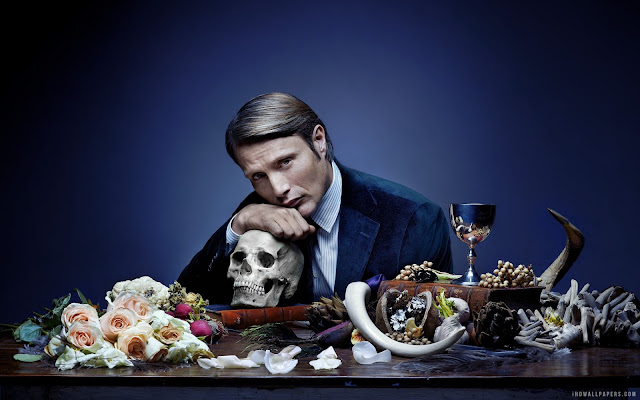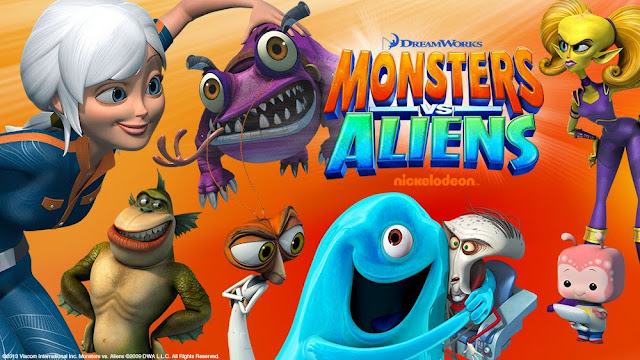Monsters in the Memory Palace: Bryan Fuller's Hannibal (2013 - 2015)
After my many years of media consumption, I've come to a particular conclusion about movie and TV adaptations of books. If the adaptation is to stand on its own, its creative team should be permitted to change the source material in ways the work to the benefit of the visual mediums in which they are working. In contrast, slavish devotion to the precise replication of a book into another medium runs the very high risk of the adaptation being regarded as little more than an imitation of an original (and an inferior one at that). The opportunity to experiment with source material has allowed novel-based films such as Invasion of the Body Snatchers, Planet of the Apes and Jaws to be viewed as equal or superior to their points of origin.
Another example that can be added to this list is Hannibal, a TV series that just ended its three-season run on NBC. Read on for my complete review of this short-lived exercise in smart and stylish TV horror.
Hannibal was based on a series of books by Thomas Harris that feature the popular character Dr. Hannibal Lecter. It was created for television by Bryan Fuller and it was billed as a prequel to Harris' first Hannibal book Red Dragon. However, as the series progressed, Fuller was able to mold the source material in Red Dragon--as well as two other Harris novels, Hannibal and Hannibal Rising--into something very different, rearranging characters and events from the books in such a way that the story became a fascinating, frightening exploration of the relationship between Dr. Lecter (played by Mads Mikkelsen) and the troubled FBI profiler Will Graham (Hugh Dancy).
Some fans have complained that the Hannibal series wasn't able to include the characters and events from The Silence of the Lambs, yet by the end of the show Lambs wasn't necessary at all. Fuller took the source material and turned it into something both sumptuous yet perverse, elegant yet gory, something that Harris himself could never imagine despite being the original creator.
I guess you can say that Hannibal is the first--and so far only--Grand Guignol/German Expressionist horror series to air on U.S. television. To follow the definition provided in Wikipedia, Grand Guignol is a genre of theater that "were in a variety of styles, but the most popular and best known were the horror plays, featuring a distinctly bleak worldview as well as notably gory special effects in their notoriously bloody climaxes. These plays often explored the altered states, like insanity, hypnosis, panic, under which uncontrolled horror could happen. Some of the horror came from the nature of the crimes shown, which often had very little reason behind them and in which the evildoers were rarely punished or defeated." Likewise, German Expressionism a form of cinema with films that "often dealt with madness, insanity, betrayal ... (as) a direct reaction against realism. Its practitioners used extreme distortions in expression to show an inner emotional reality rather than what is on the surface." Both of these genres apply to Hannibal, a show that combined techniques from both genres to depict both the external and internal worlds of madness and those who live on its razor-thin edge.
Hannibal was well-written and had a fantastic cast, but where it shined brightest is in its visual opulence and symbolism. On the one hand, the show used Dr. Lecter's intellect, sophistication and cultured tastes as a jarring counterpoint to his gruesome private activities, thus warping the dichotomy between civility and savagery in a variety of shocking, skin-crawling ways. Yet the show also peeked into the psyches of many of the characters to see how the devious plans that Lecter set into motion impacted their perceptions of the world (e.g., Graham's various visions of the dark stag).
One of Will Graham's encounters with the dark stag.
By depicting all things insane, both inside and out, the world of Hannibal became an engrossing one, one of complex personalities, beliefs and motivations that goes way beyond the standard monster/madman-of-the-week plots that characterize most horror TV shows and crime procedurals. There really hasn't been a horror series like Hannibal since Dexter, another serial killer-centric narrative where all of the monsters were human, even the upstanding ones. (Read my review of Dexter here.)
I'm sure that the character of Hannibal Lecter will continue to appear in other movies, TV shows and other mediums in the years to come, but Bryan Fuller's Hannibal is the genuine delicacy among the current selection. It will be missed.






Comments
Post a Comment